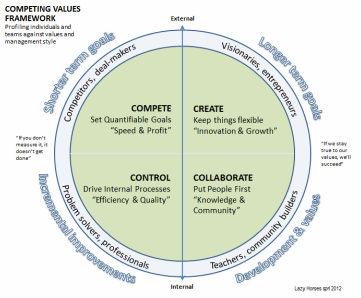
The author, Herminia Ibarra of INSEAD, gives the following example from John Kotter's work on the subject:
"... John Kotter saw management and leadership as different kinds of work, not different kinds of people. Management aims to ensure efficiency through routine planning, organising and co-ordinating; leadership aims to create change by envisioning a better future, aligning those who can make it happen, or block it, and inspiring them to do it. Most organisations, Prof Kotter argued, require a mix of both, the right dose depending on context: the more complexity — more products, geographies, units — the more management is needed; the more volatile the environment, the more leadership is required. He brought the concepts back in line with Weber by focusing on the levers available to executives rather than on their personalities. When managing, one works within one’s sphere of formal authority; when leading, one influences and motivates outside and beyond, since many crucial stakeholders are external."
Ms Ibarra continues; "Unfortunately, Prof Kotter’s blockbuster case studies of a day in the life of two contrasting Xerox managers, “Fred” and “Renn”, immortalised the less-nuanced notion of manager and leader as personality types with one clearly less attractive than the other."
The thing is; although it was popular in Kotter's day to value more the roll of nurture than nature, more recent research has supported the idea that many of our natural abilities, be they physical or mental, are indeed nature given... we must make the best of those talents. Years ago, even well meaning teachers would 'force' left handed people to write with their right hand rather than developing the optimum use of their left hand. And our brains are no different, albeit a bit more complex!
So you do require different personality types to carry out the different aspects of leading and managing. And both the Jungian psychology of archetypes and the Competing Values approach show why such attempts to balance these opposites in one person usually end in failure.
Source: http://www.ft.com/intl/cms/s/0/757264a6-7286-11e5-bdb1-e6e4767162cc.html#axzz3qKxkn8iI

 RSS Feed
RSS Feed